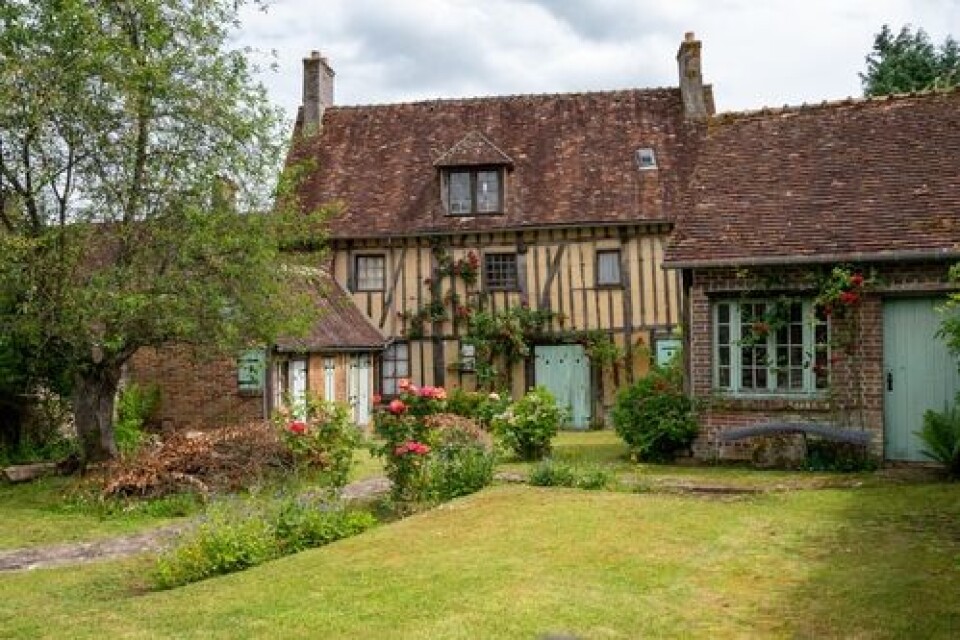-
France plans crackdown on fraud around obligatory energy ratings for homes
All homes being sold or let need an up-to-date DPE
-
How much do energy efficiency renovations cost in France?
Owners will want to ensure properties improve by at least two DPE ratings, increasing the work and cost needed
-
City in south-west France takes property owner to court for €100,000
The case is the latest move by authorities in France against short-term rental landlords
French energy rating law ‘puts older houses at risk’
France’s new energy efficiency laws do not take into account the specific qualities of pre-1948 buildings, associations warn

Many historic buildings are at risk under France’s new climate change law, according to the leaders of eight associations dedicated to preserving heritage.
They have written to the environment minister to ask for the loi climat et résilience to be revisited, as it makes no mention of the third of buildings built before 1948.
The new law bans the owners of buildings with the worst energy performance ratings from renting them out.
Read more: Rent prices in France frozen for least energy efficient properties
The associations’ presidents believe pre-1948 structures – usually built using materials such as stone, brick or wood, and designed to retain heat – risk being associated with other buildings from before 1974, when the first insulation rules were brought in.
During the post-war period, the main objective was to build new housing as quickly as possible.
Gilles Alglave, president of Maisons Paysannes de France, told The Connexion: “The quickest way of raising your classification is to have insulation put on the walls.
“This now usually means polystyrene blocks glued to the outside, because it is quick and cheap, although polystyrene is a disaster for the environment.
“The effect on old buildings is catastrophic, because the walls are unable to evaporate humidity, as they were designed to do, and the whole structure can be put at risk.”
He said his association has been battling for a decade for energy certificates for old buildings to take account of their inherent qualities.
Old houses energy efficient but in a completely different way
“They are often very energy-efficient but in a completely different way to the buildings which came after,” he said.
“The mass of an old stone wall, for example, has inertia to temperature changes which you do not get with thinner concrete walls.
This means that in hot weather, stone-built houses often stay cool for a long time, and in winter, they stay warm. But this inertia is not at all taken into account by the new law.”
Other examples are the preference in the law for replacing old, wooden windows, with new ones made from PVC plastic.
“I have had people come and say that suddenly their houses are damp and they do not know why,” Mr Alglave said.
“I ask what work they have had done and they say they have just changed the windows to PVC and I say that is the problem.
Wooden windows made by craftspeople who know what they are doing always have some ventilation to let humidity out, whereas PVC windows made in a factory do not.
It can be a disaster to fit them in old buildings.”
In the letter, the association presidents said: “If this work to improve the energy-efficiency of buildings does not respect what they often are – a building bio-climate regulated by nature – and puts it in the same basket as something which it is not – a passoire thermique [literally a thermal sieve and the term used to describe buildings with heavy energy loss] – far from protecting them into the future, it will condemn them.”
They added: “We do not think this was done deliberately.
It is an omission in the drafting of the law which it is urgent and vital to correct.”
Mr Alglave said he had not received an acknowledgement of the open letter from the ministry, and the next step would be to seek a meeting with ministers.
An environment ministry spokesman said he was unaware of the letter but he was sure it would be taken into consideration.
Related articles
French property sales: Why do some listings not have energy ratings?
Home energy efficiency: Key dates for property owners in France
Energy certificate rules could see house prices fall in France
























